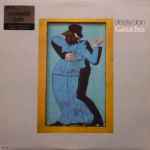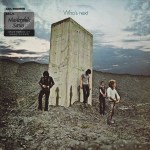 More of the Music of Steely Dan
More of the Music of Steely Dan
Reviews and Commentaries for Gaucho
The Masterphile Half-Speed is a pathetic shadow of the real thing, the real thing being an early MASTERDISK pressing cut by Robert Ludwig.
We’ve played at least a hundred of the original pressings, and I would be surprised if every one of them did not sound better than this compressed, desiccated audiophile piece of trash.
With sound like that, the MCA Masterphile gets our vote for the worst version of the album ever made.
Of all the great albums Steely Dan released, and that means their seven original albums and nothing that came after, there are only three in our opinion that actually support their reputation as studio wizards and recording geniuses. Chronologically they are Pretzel Logic, Aja, and Gaucho.
Every sound captured on these albums is so carefully crafted and considered that it practically brings one to tears to contemplate what the defective DBX noise reduction system did to the work of genius that is Katy Lied, their best album and the worst sounding. (Those cymbal crashes can really mess with your mind if you let them. To get a better picture of the DBX sound just bang two trash can lids together as close to your head as possible.)
The first two albums can sound very good, as can Royal Scam, but none of those can compete with The Big Three mentioned above for sonics. A Hot Stamper copy of any of them would be a serious DEMO DISC on anyone’s system system.
Mistakes Were Made
If you are still buying these modern remastered pressings, making the same mistakes that I was making before I knew better, take the advice of some of our customers and stop throwing your money away on Heavy Vinyl and Half-Speed Mastered LPs.


